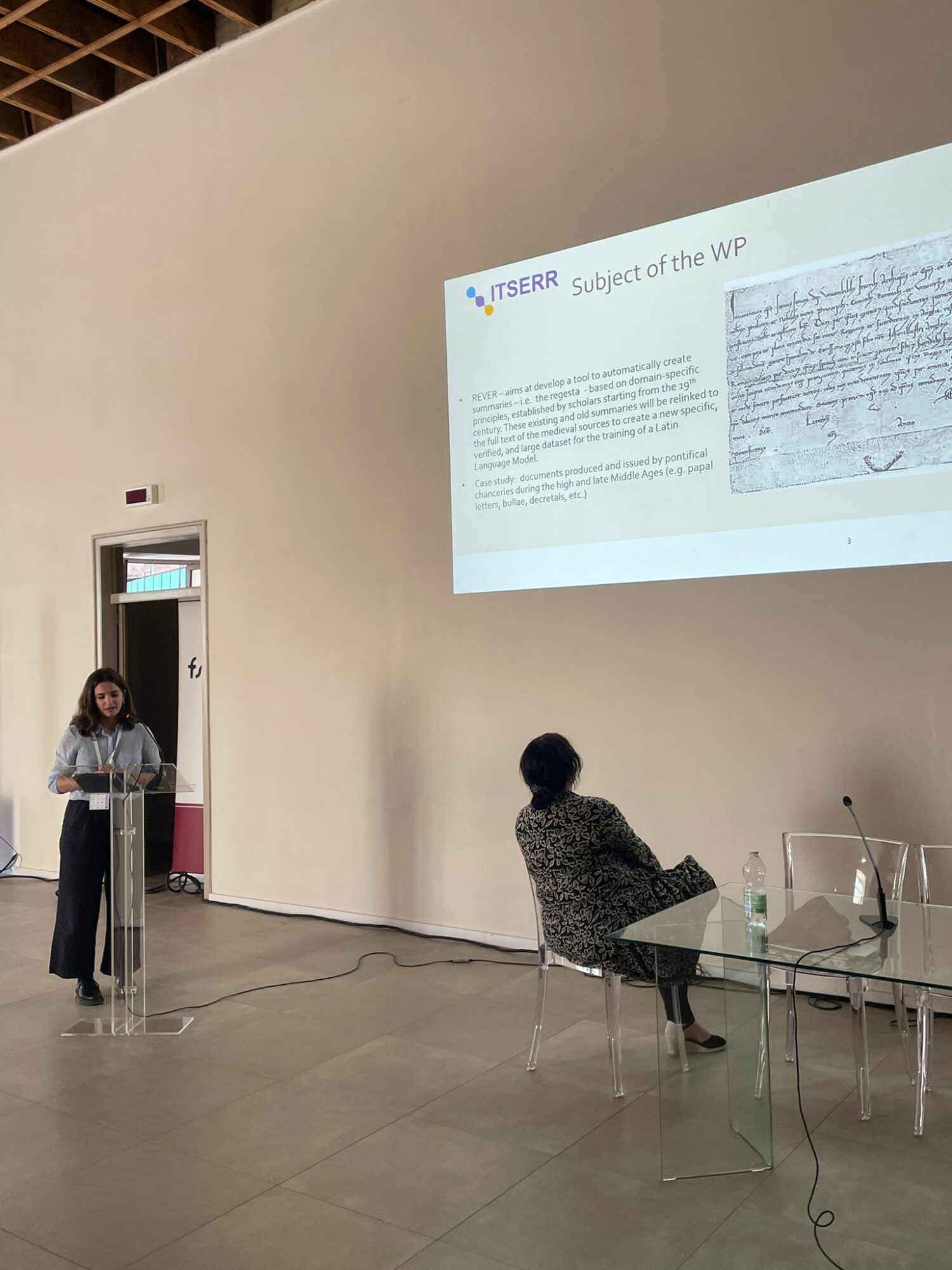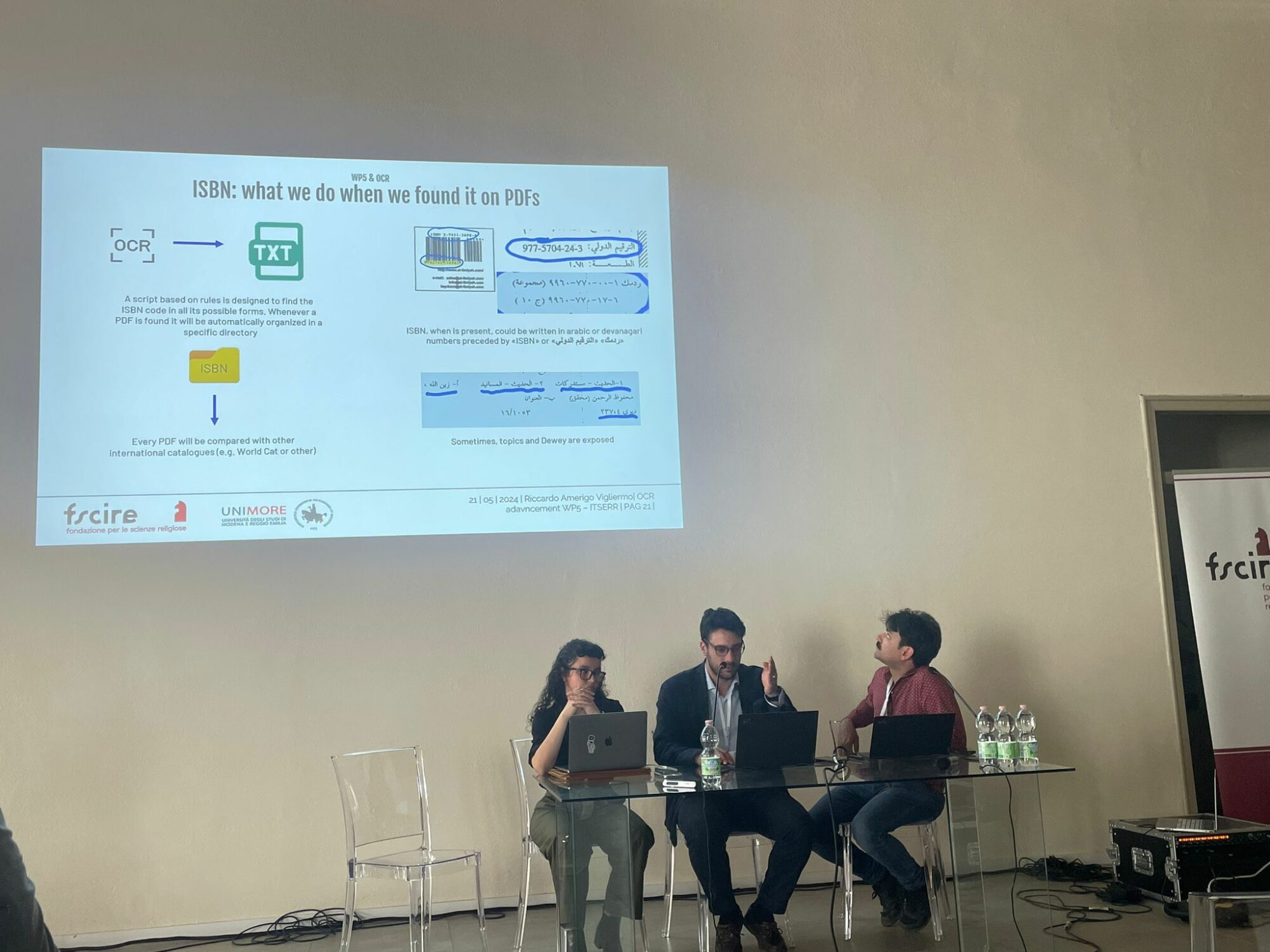More ITSERR Results Supporting RESILIENCE
ITSERR scholars have achieved many good results in developing services for supporting RESILIENCE, the panel at #EuARe2024 today showed.
Presenting Results
For the ITSERR team, today’s panel has been a great opportunity to present its first results to the public. Equally important has been the chance of discussing their work with the representatives of RESILIENCE. As one of the panelists said: “We have seen how the data management support of an infrastructure like RESILIENCE can help us, for instance in dealing with sensitive data related to faith, belief and religion. Also, we were able to showcase the tests made with some tools developed by RESILIENCE partners, such as E-Scriptorium.”

Full Operation
ITSERR is now in full operation, and beginning to produce its first results. WP3 (Workpackage 3) created a prototype of a visualisation software for religious normative texts, Gnorm. It also has collected use case requirements for Criterion, a text editor for critical editions. WP4 has made advances in collecting and handling texts in Old Church Slavonic, and also in defining its semantic analysis requirements. WP5 is continuing its work on the automatic recognition of frontispieces in Arabic characters, but has also begun exploring the opportunities and risks of gpt-based AI, such as in the case of hallucinations. WP6 has launched an experimentation on how sacred places and images are approached by viewers, thanks to state-of-the-art eye tracking devices. WP7 has begun extracting data for Reverse Regesta thanks to a thorough survey of OCR tools, and also, with the assistance of the CNR (Italian Council of Research), thanks to the use of annotation tools, such as Inception. Finally, WP8 is now actively experimenting with parsing of critical apparatuses of the Bible, and with the identification and visualization of biblical and Quranic quotations.

AI Based Tool
The WP7 Rever – REVERse Regesta aims at creating a AI based tool a le to produce new summaries (the regesta) of medieval papal documents. The research team has recently presented the first 800 annotated medieval documents that will be used to train the AI.